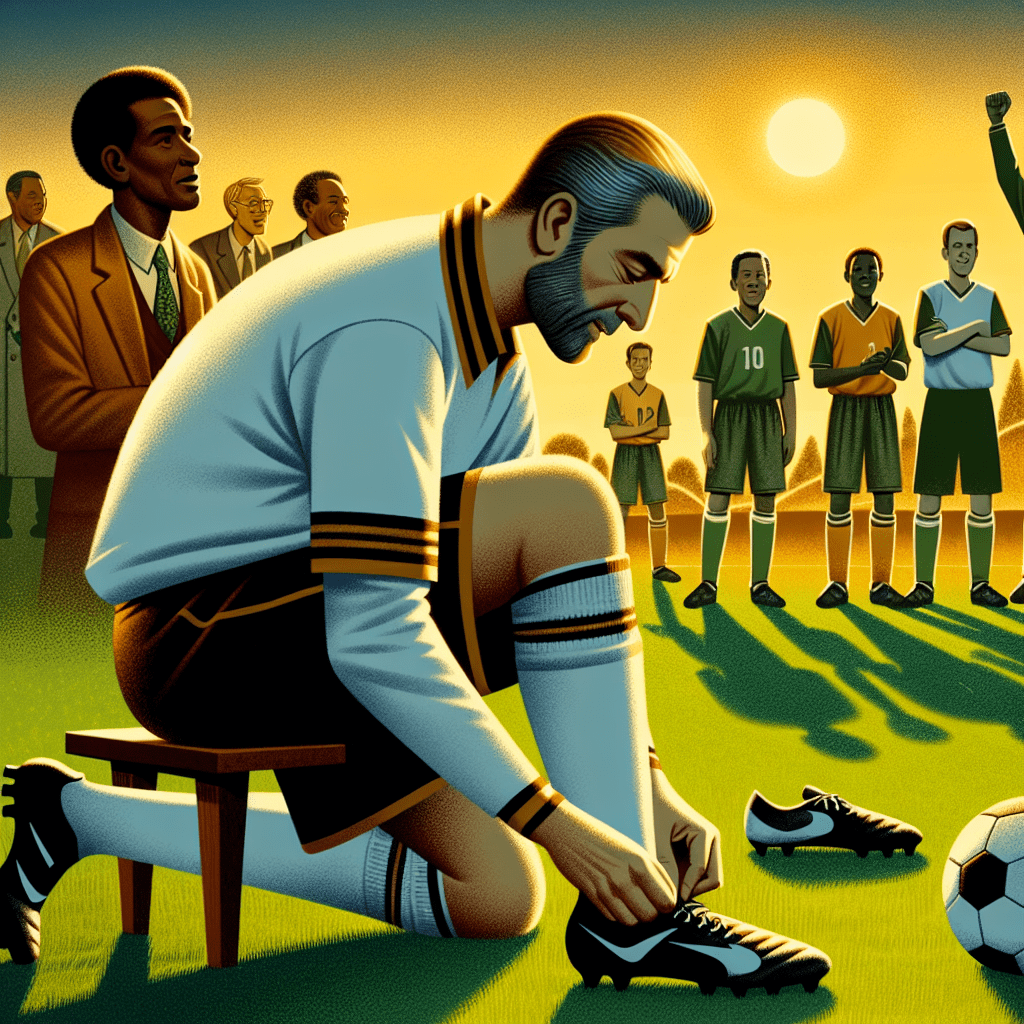[ad_1]
The whistle blows, signalling the end of the game. But for some, it also signals the end of a career that has been their life’s passion. The transition from professional soccer player to retirement is one that is often fraught with uncertainty, challenge, and a quest for identity beyond the pitch. However, this transition also opens up avenues for growth, learning, and new opportunities in the world of soccer and beyond.
Understanding the Transition
Transitioning from an active professional career in soccer to retirement is not merely a career change but a lifestyle overhaul. This phase can be marked by a loss of identity, routine, and purpose, which can lead to significant challenges.
Challenges Faced by Retiring Soccer Players
Identity Loss
For many players, their identity is deeply intertwined with their career. Retirement can trigger a profound sense of loss.
Financial Management
The end of a lucrative career can bring financial uncertainty. Managing finances without the consistent income from playing can be daunting.
Mental Health Issues
Mental health challenges, including depression and anxiety, are common among athletes transitioning away from their sports careers.
Paths to Success Post-Retirement
Coaching and Mentoring
Many retired soccer players find a new purpose in coaching, using their experience to mentor the next generation of talent.
Media and Broadcasting
Transitioning to a career in television, radio, or online sports media is a popular path, offering an opportunity to stay connected to the sport.
Business and Entrepreneurship
Some leverage their fame and experience in soccer to build successful businesses or engage in entrepreneurial ventures.
Continued Education
Many soccer players pursue higher education, broadening their qualifications and preparing for a variety of new career paths.
Key Takeaways
- Retirement from soccer is an emotional and lifestyle transition, often challenging but also filled with opportunities.
- Identity loss, financial management difficulties, and mental health issues are common challenges faced during this transition.
- Paths to a successful transition include coaching, media and broadcasting, business, and continued education.
- Planning for retirement while still playing can smoothen the transition, offering a sense of purpose and direction post-career.
Frequently Asked Questions (FAQs)
What should soccer players do to prepare for retirement?
Planning early, diversifying skills, and seeking financial advice can be critical steps in preparing for a successful transition into retirement.
How can former soccer players stay connected to the sport after retirement?
Many retired players stay connected through coaching, mentoring, media roles, or engaging in community soccer programs.
Can a soccer player have a successful career after retiring from the sport?
Absolutely. Many former soccer players have thrived in their post-retirement careers across various fields by leveraging their skills, fame, and passion for soccer.
What mental health resources are available for retiring soccer players?
Professional associations, sports organizations, and mental health services offer support and resources to athletes struggling with the transition.
[ad_2]






